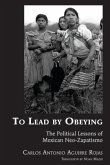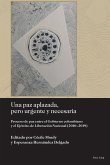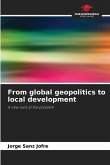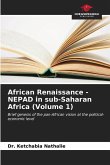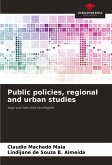The first decade of the twenty-first century saw a radical new approach to higher education in Cuba, as the country began slowly to recover from the economic and social devastation of the 1990s: the decision to establish local university sites in every one of its 169 municipalities. From a sector dominated by White, urban youth, participation widened to include people and, vitally, places that had been excluded or viewed as peripheral. In a country of 11 million people, university enrolments reached almost 750,000, offering unprecedented access to higher learning and creating a mass of new professionals who would go on to transform their localities.
This book lays out those local transformations, drawing on interviews and workshops with students, teachers and policymakers from six very different communities in the mountainous eastern province of Granma. Their testimony highlights the interconnectedness of individual and collective change, the importance of situated pedagogy and the direct impact of higher learning on communities' material and cultural development. Setting their experiences of the programme against the controversies that beset it brings into focus, again and again, the competing priorities of equality, social value, economic realities, academic excellence and political conformity: essentially, the debate over what and who higher education is for.
"It is, so far, the first ethnographic approach to the universalisation of Cuban higher education. From her honest positionality, Smith goes beyond hegemonic research sites and narratives, and shows us how local people enacted a network of (new) local relationships, agencies, knowledge, and social positions from within their local universities. This research definitively assesses how universalisation came about in Cuba's municipalities, transcending the aim of training professionals."
-Alexander Cordoves, Aarhus University
"Smith's impressivestudy about Cuba's municipalization and universalization program of higher education in the Granma province reveals depth and breath, providing a holistic and illuminating account about a littleknown topic in Cuban education. Theoretically sophisticated, she makes a convincing argument for community engagement in higher education. Noteworthy is the inclusion of participants to contribute to the analysis and study's write-up. Smith's scholarship and approach reflects the Cuban values she so deftly documents: equity, inclusion, and justice."
-Denise Blum, Oklahoma State University
.
This book lays out those local transformations, drawing on interviews and workshops with students, teachers and policymakers from six very different communities in the mountainous eastern province of Granma. Their testimony highlights the interconnectedness of individual and collective change, the importance of situated pedagogy and the direct impact of higher learning on communities' material and cultural development. Setting their experiences of the programme against the controversies that beset it brings into focus, again and again, the competing priorities of equality, social value, economic realities, academic excellence and political conformity: essentially, the debate over what and who higher education is for.
"It is, so far, the first ethnographic approach to the universalisation of Cuban higher education. From her honest positionality, Smith goes beyond hegemonic research sites and narratives, and shows us how local people enacted a network of (new) local relationships, agencies, knowledge, and social positions from within their local universities. This research definitively assesses how universalisation came about in Cuba's municipalities, transcending the aim of training professionals."
-Alexander Cordoves, Aarhus University
"Smith's impressivestudy about Cuba's municipalization and universalization program of higher education in the Granma province reveals depth and breath, providing a holistic and illuminating account about a littleknown topic in Cuban education. Theoretically sophisticated, she makes a convincing argument for community engagement in higher education. Noteworthy is the inclusion of participants to contribute to the analysis and study's write-up. Smith's scholarship and approach reflects the Cuban values she so deftly documents: equity, inclusion, and justice."
-Denise Blum, Oklahoma State University
.


